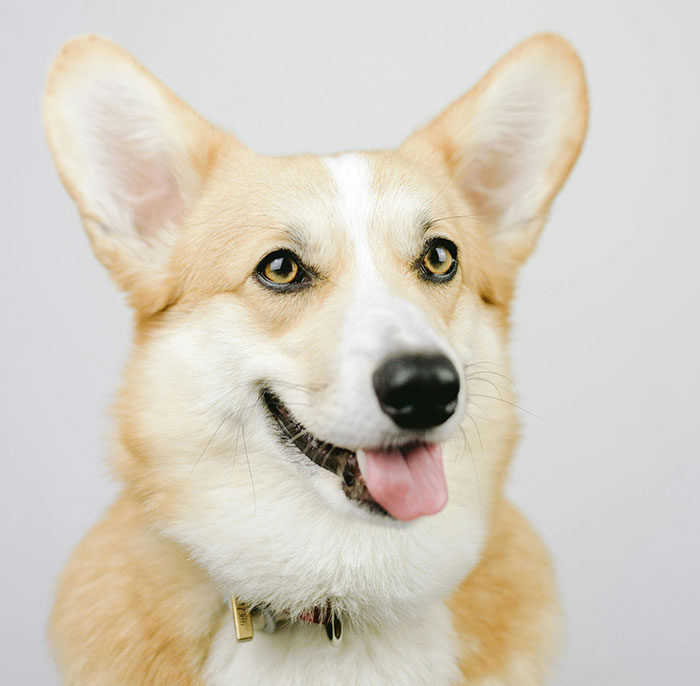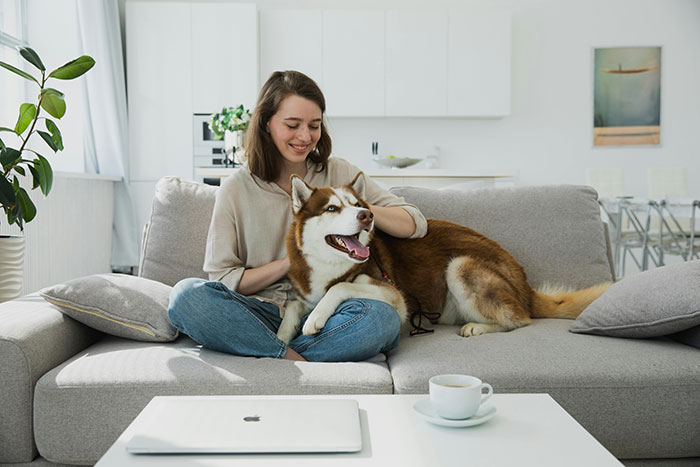As a dog owner and lover, you witness countless moments of joy and laughter shared between humans and their furry best friends. The question of whether dogs can actually laugh is a fascinating aspect of the intricate bond we share with our dogs.
In this article, we will explore whether dogs can laugh, attempt to understand their sense of humour, and decipher the delightful mysteries behind their playful expressions.
- Research suggests dogs have a form of laughter.
- Dogs may not understand jokes but respond to laughter.
- All dog breeds can exhibit laughter-like sounds.
The information provided herein is for informational purposes only. Please refer to our disclaimer for more details..
- Decoding Dog Laughter: Can a dog laugh at You?
- Understanding Canine Sense of Humor: Do Dogs Know We Are Laughing?
- Can Dogs Consciously Smile? Uncovering A Dogs Smile
- Can All Dog Breeds Laugh?
- The Playful Side of Canines: Can You Make Your Dog Laugh When Tickled?
- Do Dogs Have A Sense of Humor? Dogs Invite Humans to Play and Laugh
- Conclusion: The Heartwarming Truth That Dogs Do Laugh
Decoding Dog Laughter: Can a dog laugh at You?
Image credit: Alina Skazka
The idea of a dog laughing might seem like a strange concept, but research suggests that dogs indeed possess a form of laughter. Dogs are not able to laugh like humans, but dogs use laughter to communicate.
Animal behaviorists Patricia Simonet conducted groundbreaking research where they recorded the distinctive sounds made by dogs and found that dogs laughter is actually possible.
Where human laughter is loud, dogs playing, and a dog’s laughing is described as a breathy dog panting sound.
Researchers’ work also revealed that dogs laugh not only during play but also in response to being tickled. It’s a beautiful revelation that adds a new layer to our understanding of canine communication and our relationship with dogs.
Understanding Canine Sense of Humor: Do Dogs Know We Are Laughing?
Dogs are incredibly adept at reading human emotions, even better than other animals we surround ourselves with, and can discern nuances in our voices and facial expressions. But how do you know if your dog knows what’s happening with a joke?
While dogs may not understand humor as humans do, they can undoubtedly pick up on the positive vibes associated with laughter. Human emotion will often result in a greater sense of happiness in dogs.
When we laugh, our body language changes – we might smile, our posture becomes relaxed, and we give off positive energy. All little telltale signs dogs pick up op, alleviating stress and anxiety in our furry friends.
Dogs are genuinely masters at reading our cues, and you’ve probably noticed that they often respond to our laughter with wagging tails, play bows, and even excited barks. So, while your best friend may not understand the joke, they do comprehend the joyous atmosphere laughter creates.
Can Dogs Consciously Smile? Uncovering A Dogs Smile
Image credit: EKATERINA BOLOVTSOVA
The concept of a dog smiling might bring an immediate mental image of a content pup with a seemingly upturned mouth which stretches almost from ear to ear. While dogs don’t express emotions through facial expressions like humans do, they have their ways of conveying happiness, typically as a response to a human,
Relaxed, open jaws which reveal the tongue, a wagging tail, and bright eyes could be considered a type of a dog’s version of a smile. These expressions are part of their intricate language, and as dog owners, we become adept at understanding and appreciating these subtle cues.
Can All Dog Breeds Laugh?
Research demonstrates that various dog breeds exhibit laughter-like sounds and a happy disposition where dogs laugh and smile to please us, and to show that they are happy. The researchers effectively debunk the myth that smiling is exclusive to specific types of dogs.
This universality in dog laughter underlines the shared joy that transcends breed and types of furry companions. So, whether you have a playful retriever or an elegant greyhound, the potential for laughter is part of their canine nature.
The Playful Side of Canines: Can You Make Your Dog Laugh When Tickled?
Much like humans, dogs also have their ticklish spots. The researcher’s recordings captured dogs emitting laughter-like sounds when tickled in certain areas similar to a laugh.
The playful reactions, often accompanied by wriggles and wagging tails, showcase the wonderful playfulness ingrained in a dog’s nature. It’s a heartwarming reminder of the joy that emerges from even the simplest interactions with our furry companions.
Just remember that although your dog may laugh, dogs understanding of a joke is not like ours. It is crucial to ensure that you don’t make your dog stressed from the interaction by overdoing the tickling.
Do Dogs Have A Sense of Humor? Dogs Invite Humans to Play and Laugh
Dogs can remarkably invite humans into moments of joy and laughter. Play bows, where a dog lowers its front end while keeping its back legs elevated, are a classic invitation to play.
These gestures, often accompanied by a wagging tail and excited barks, highlight the strong connection between human and canine laughter. Dogs, in their charming way, bridge the gap between species through shared moments of happiness.
While laughter might have evolved differently in humans and dogs, playfulness and joy are part of both our species. Laughing with your dog and responding to its invitation to joy is a testament to your bond!
Conclusion: The Heartwarming Truth That Dogs Do Laugh
In answer to the question of whether dogs can actually laugh – the answer is yes. It is echoed not just by scientific research but by the countless pet owners who have experienced the sheer delight of their dogs’ infectious laughter and happy disposition.
‘Laughing’ is most often seen in dogs playing, or as a response to our primate laughter – or even in response to tickling! You may even consider that dogs have a sense of humor, even if they cannot produce a laugh sound like us, they can invite humans and other dogs to be in on the joke!
Observing these moments of shared laughter reinforces the importance of understanding and cherishing the unique ways dogs express happiness.
So, the next time you share a hearty laugh with your canine companion, you may consider the heartwarming truth that your dog is laughing right along with you, creating a bond that transcends words and speaks to the wonder of the human-canine connection.
658views
Share on Facebook















4
0